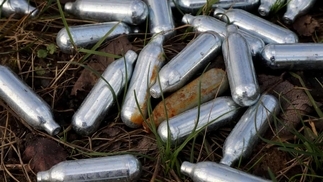MDMA and cocaine traces in Glastonbury river are threatening local wildlife
Public urination is thought to be a key contributor to the situation

MDMA and cocaine traces in the River Whitelake, which runs next to Glastonbury Festival, are threatening local wildlife, according to a new environmental report based on samples taken close to the world-famous festival site.
Environmentally harmful levels of several illegal substances have been detected in the body of water running next to the iconic location. Tests were conducted before, during, and after the last Glastonbury Festival, which took place in 2019, and results for MDMA and cocaine showed quantities that could prove damaging not just for wildlife in the immediate area, but also further downstream, including areas that are home to European eels, a particularly rare, protected species.
Comparisons between the water contents before and after the event itself showed MDMA concentrations were four times higher in the week following the five-day spectacular. Experts believe this shows evidence of long-term toxic run-off from the site. It's thought a major contributor has been attendees urinating directly onto the land, rather than in toilets provided by the festival.
"Protecting our local streams and wildlife is of paramount importance to us at Glastonbury Festival and we have a thorough and successful waterways sampling regime in place during each festival, as agreed with the Environment Agency," a spokesperson for Glastonbury Festival said, adding the Environment Agency had not raised any concerns following the 2019 event.
"We are aware that the biggest threat to our waterways — and the wildlife for which they provide a habitat — comes from festivalgoers urinating on the land," he continued. "We are keen to see full details of this new research, and would be very happy to work with the researchers."
Dr. Christian Dunn, of Bangor University, said: "Our main concern is the environmental impact. This study identifies that drugs are being released at levels high enough to disrupt the lifecycle of the European eel... We need to raise awareness around drug and pharmaceutical waste, it is a hidden, worryingly-understudied yet potentially devastating pollutant."
"Illicit drug contamination from public urination happens at every music festival," Dan Aberg, a Masters student at the School of Natural Sciences at Bangor University, added. "Unfortunately, Glastonbury Festival's close proximity to a river results in any drugs released by festival attendees having little time to degrade in the soil before entering the fragile freshwater ecosystem."
Glastonbury Festival was cancelled in 2020 and 2021 as a result of the COVID-19 pandemic, with a proposed two-day event for September this year also pulled due to uncertainty arising from coronavirus. At the time of writing, there has been no confirmation as to when the festival will return. Last year, DJ Mag published an in-depth report on the scale of work needed to reduce the environmental impact of music festivals.



.jpeg.jpg?itok=JH9fKrnZ)

